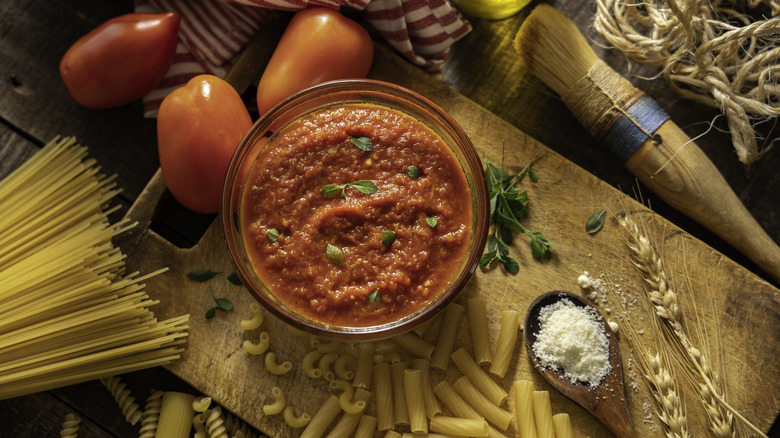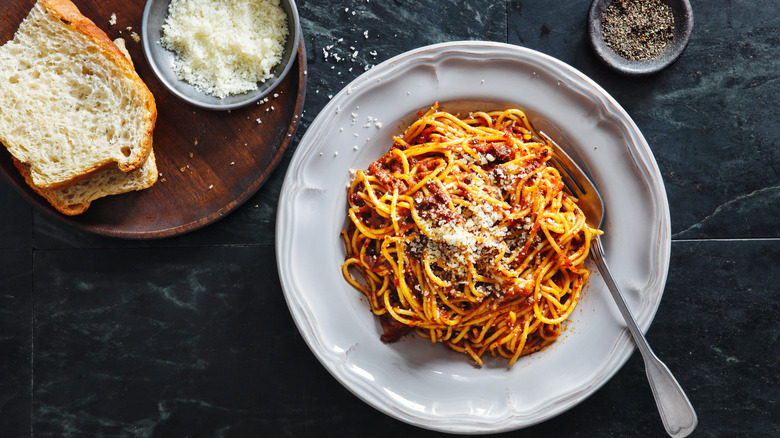How Long You Should Actually Simmer Homemade Spaghetti Sauce
Sundays are made for traveling to Nonna's house to enjoy Sunday gravy over homemade spaghetti and meatballs. You don't know how she does it, but when you arrive, this iconic sauce is ready to feed the hungry masses of aunts, uncles, and cousins. Homemade spaghetti sauce is thick with sweet chunks of stewed tomatoes and a hint of basil and garlic. You may marvel at Nonna's dedication to making Sundays delicious, then wonder how long it would take to replicate this sauce at home.
A good homemade tomato sauce takes time to create. Usually, the more time, the better off it will be. It's crucial to remember that tomatoes are 95% water and should be cooked out to make a thick, clingy sauce. To achieve optimal thickness and flavor, your sauce needs to simmer for a minimum of 30 minutes. Ideally, you should aim for three hours. When simmering, the bubbles should be lazy, and no more than a few should appear every minute. Remember, low and slow.
As the marinara sauce cooks, its color will change from a bright, tomato ruby red to a darker, richer, and more concentrated sauce that clings to whatever type of pasta you're serving alongside.
Simmering your homemade marinara sauce is passive, but worth it
All this time is essential so the sauce can reduce and flavors can concentrate. Time is also necessary to allow the tomatoes' natural sugars to caramelize and sweeten. While simmering, stir the sauce often so those natural sugars don't scald on the bottom of your pot. As time goes on, the canned tomatoes you use will go from bright and acidic to sweet and mellow with a hint of acidity. Stop cooking after you've tasted the sauce and feel like it's the perfect doneness for your palate.
If you accidentally over-reduce and find yourself missing the bright notes of fresh tomato, add 1 or 2 cups of tomatoes from the can back into the sauce. Use a wide, non-reactive skillet if you're pressed for time and can't wait hours for your sauce to simmer and reduce. More surface area means faster evaporation and more deeply concentrated flavors.
The next time you're planning to make a big pot of spaghetti sauce, the key thing to remember is to keep it low and slow and check on your homemade sauce occasionally. You really won't regret the time investment. Trust us.

